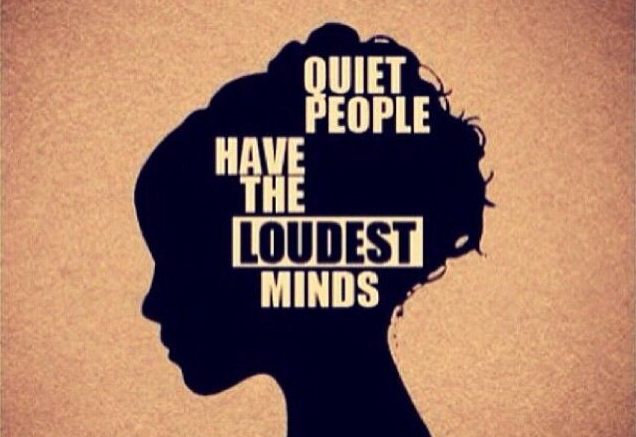The dichotomy of introversion and extroversion is a widely debated topic in psychology and, indeed, among spiritual communities. Within the teachings of the Bahá’í Faith, there appears to be an implicit understanding that both personality types are integral to the fabric of humanity. This article endeavors to explore the spiritual case for both introverts and extroverts, addressing common observations and hinting at the deeper reasons for the fascination surrounding these personality traits.
To start, one must acknowledge that introverts often exhibit a preference for solitary activities, finding rejuvenation in serene environments. Their introspective nature allows for deep contemplation and profound insights. Conversely, extroverts thrive in social settings, deriving energy from interactions and enjoying the vibrancy of communal experiences. In the context of Bahá’í teachings, both traits encapsulate unique expressions of the human spirit, worthy of recognition and respect.
Central to Bahá’í philosophy is the notion of unity in diversity. This principle encourages the recognition of individual attributes, including the spectrum between introversion and extroversion. The spiritual significance here lies in appreciating that each personality type contributes to the collective mission of fostering community and enhancing mutual understanding. An investigation into the implications of this principle reveals that both introverts and extroverts play vital roles in the pursuit of spiritual development and the betterment of humanity.
Bahá’í teachings emphasize the importance of community. Introverts, with their reflective tendencies, often serve as thoughtful listeners and contemplative advisors. Their ability to observe and analyze provides a foundation for deep connections. In gatherings, introverted individuals may not be the most vocal participants, yet they possess an inherent capacity for empathy and understanding, becoming beacons of wisdom in their quietude.
On the other hand, extroverts enliven communities through their exuberance and charisma. Their inclination towards engagement catalyzes conversations, facilitates interactions, and propels collective initiatives. In the Bahá’í context, extroverted individuals often take initiative in community-building activities, rallying others toward a shared vision. Thus, both personality types, though seemingly contradictory, complement one another harmoniously, promoting a robust communal structure.
Furthermore, a deeper exploration of the Bahá’í teachings unveils the importance of spiritual virtues that transcend personality classifications. Qualities such as love, patience, and unity are encouraged for all believers, irrespective of whether one identifies more as an introvert or an extrovert. These virtues cultivate an environment where individuals can flourish. Encouraging diversity within the community ultimately leads to collective transformation.
In the process of spiritual growth, the Bahá’í Faith emphasizes the necessity of both inner and outer experiences. Introverts often engage in self-reflection, pondering their spiritual path and seeking to align their actions with their beliefs. This meditative practice can lead to profound revelations about the nature of existence and one’s role in the universe. The serenity found in solitude can forge strong spiritual connections to the divine, which is essential in the Bahá’í pursuit of truth.
Conversely, extroverts benefit from communal activities, fostering collaborative relationships that encourage strength in unity. Their enthusiastic engagement often leads to joint endeavors in service, showcasing the importance of collective action in advancing the principles of the Faith. Active participation in community service and outreach enhances the overall efficacy of the Bahá’í teachings, bolstering the notion that everyone’s contributions are essential to the spiritual edifice.
Moreover, it is vital to recognize the emerging insights from contemporary research on personality and spirituality. Recent studies indicate that no single personality type possesses an exclusive right to spiritual enlightenment. Rather, individuals can cultivate traits characteristic of the opposite type, leading to a more rounded spiritual existence. Bahá’í teachings advocate for the development of one’s inner capabilities, encouraging both introverts to embrace extroverted endeavors and extroverts to delve into the depths of introspection.
Furthermore, a harmonious blend of both introversion and extroversion can lead to greater innovation. In a Bahá’í context, innovation is paramount, especially concerning the developement of solutions to society’s intricate challenges. The fusion of various perspectives—introvert insights and extrovert enthusiasm—cultivates a fertile ground for creativity and progressive thinking. This amalgamation of energies reminds us that neither trait is superior; rather, both are essential in nurturing a dynamic and spiritually vibrant society.
In contemplating the spiritual implications of being an introvert or an extrovert, one must also address the societal perceptions and misconceptions surrounding these classifications. In some circles, extroversion is prized, often overshadowing the introspective qualities that introverts may embody. Nonetheless, in the realm of spirituality, every contribution, no matter how quiet or loud, is indispensable in the grand tapestry of life.
Ultimately, the Bahá’í teachings illuminate the vastness of the human experience, positing that both introverts and extroverts are crucial to sustaining a balanced society. They encourage believers to embrace an inclusive understanding of personality differences, using them as tools for personal growth, community enhancement, and collective advancement. Thus, within the spiritual framework, both tendencies serve a higher purpose, reminding us that every individual has a role to play in the unfolding narrative of unity, compassion, and shared responsibility.
In conclusion, the spiritual case for both introverts and extroverts is not merely a question of personality; it is a profound affirmation of the diversity inherent in humanity. Through the lens of Bahá’í teachings, one comprehends that both traits are celebrated, utilized, and transformed into powerful instruments of spiritual enrichment and societal progress.
